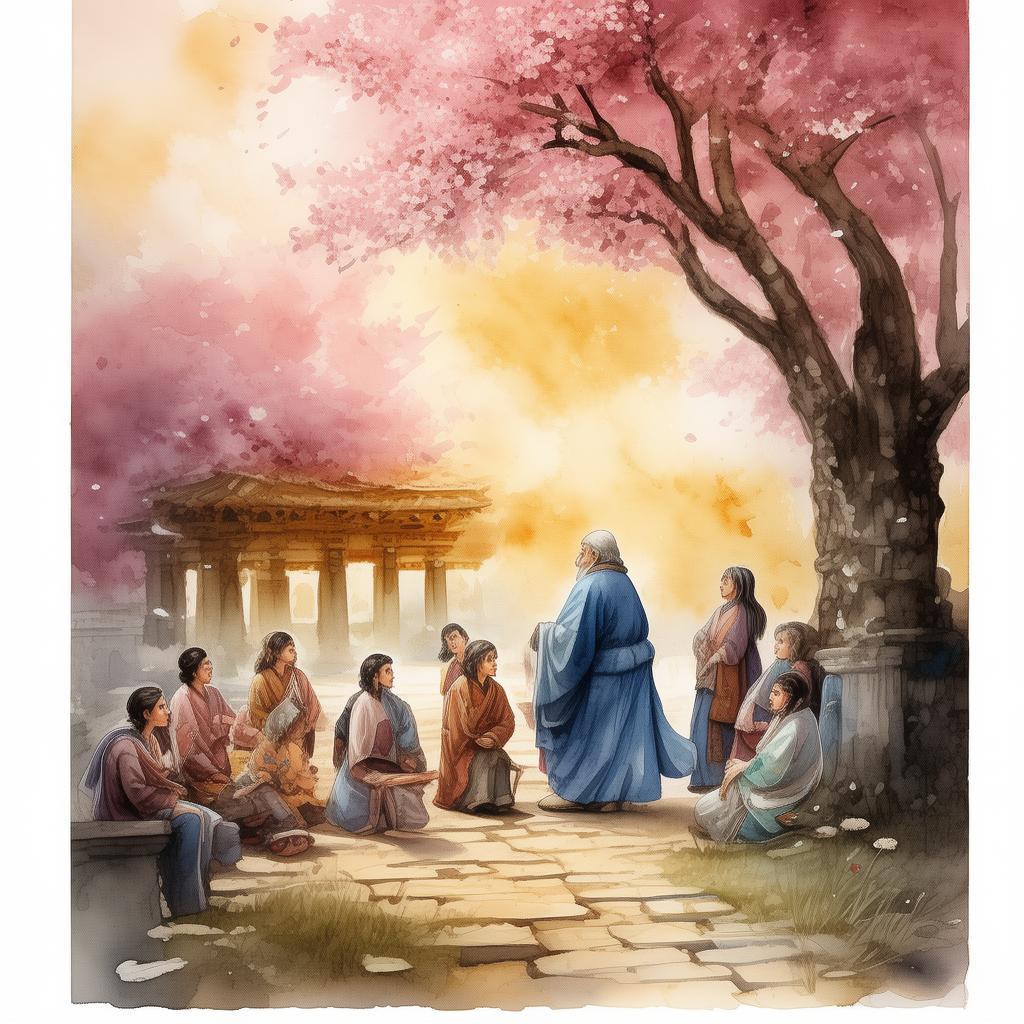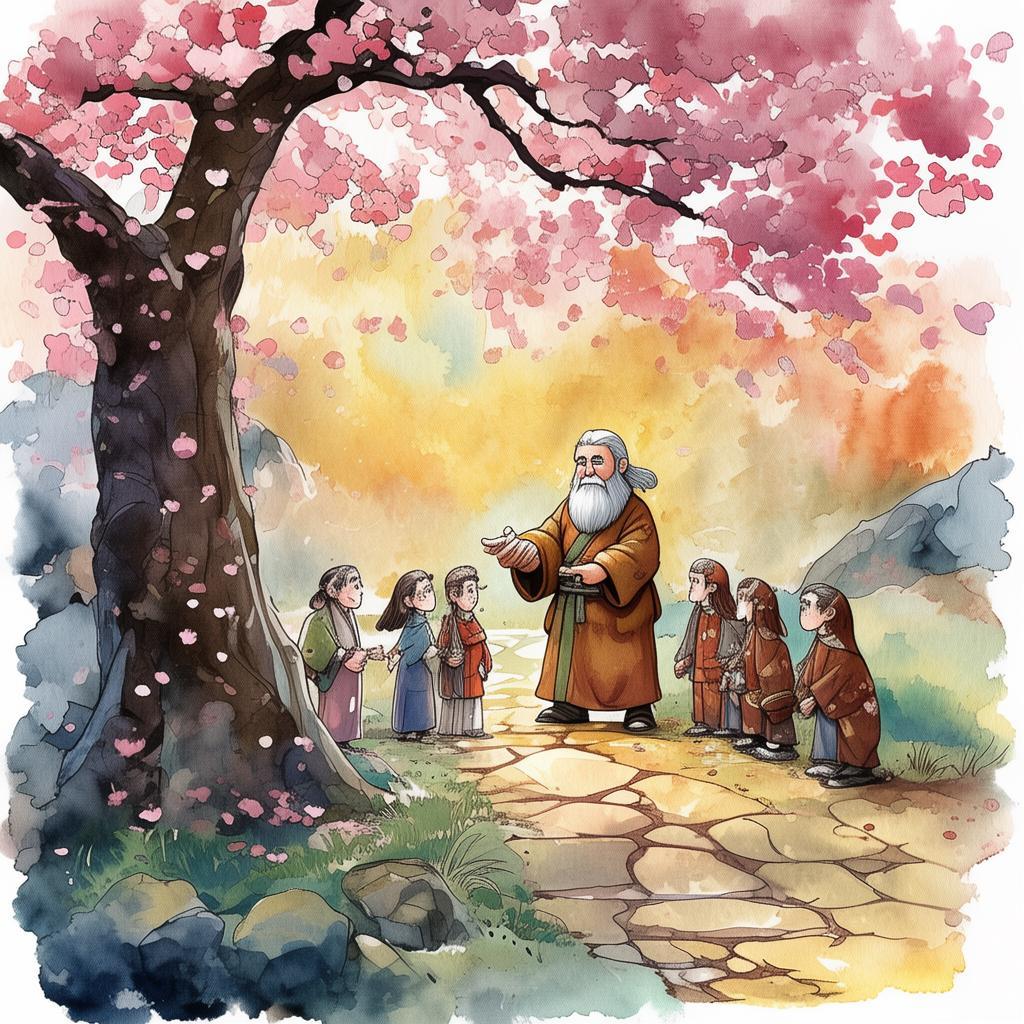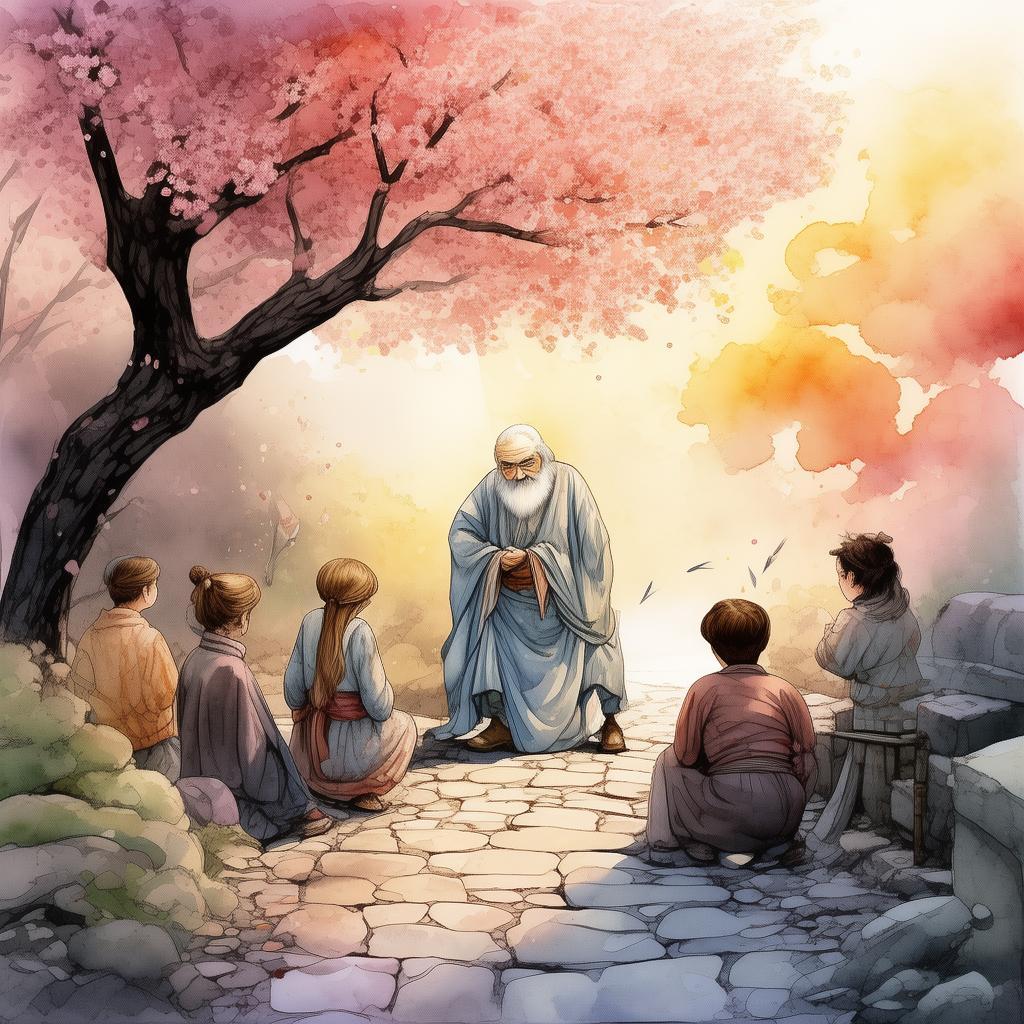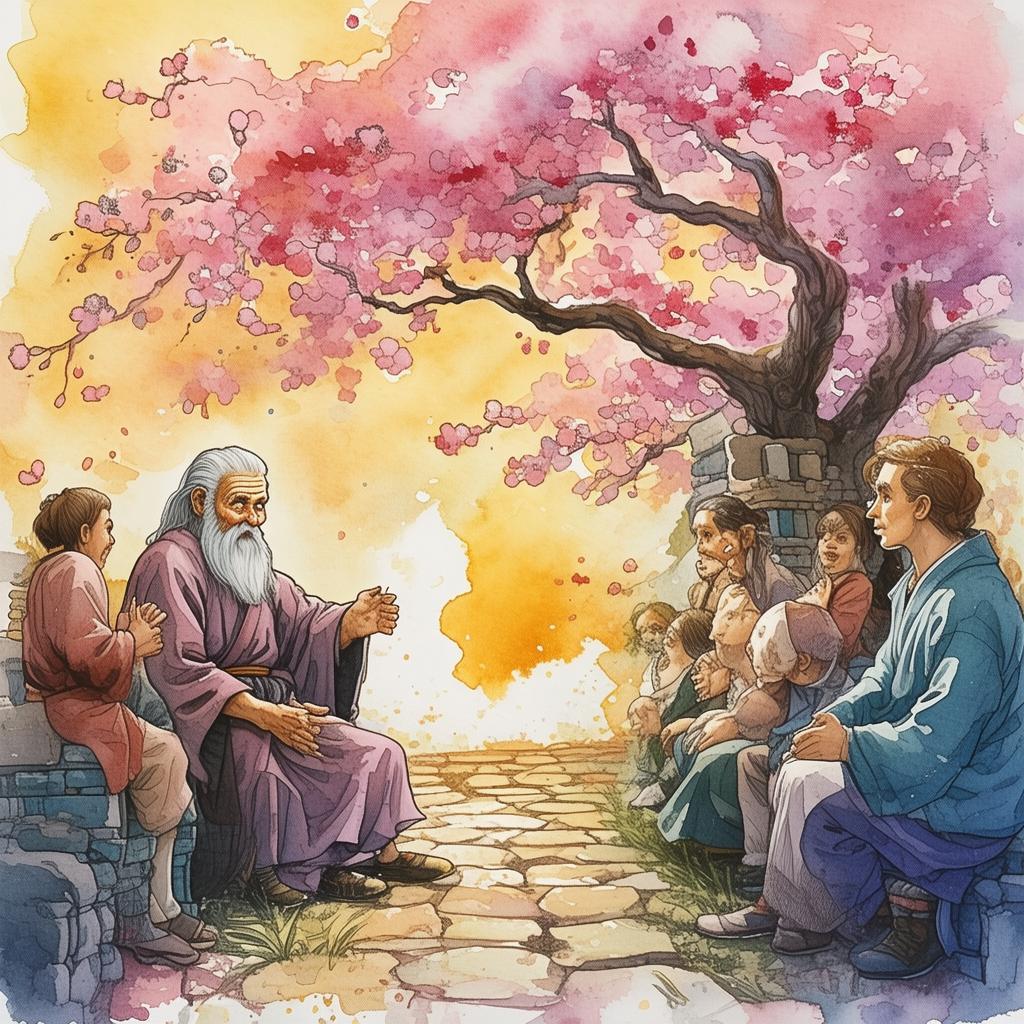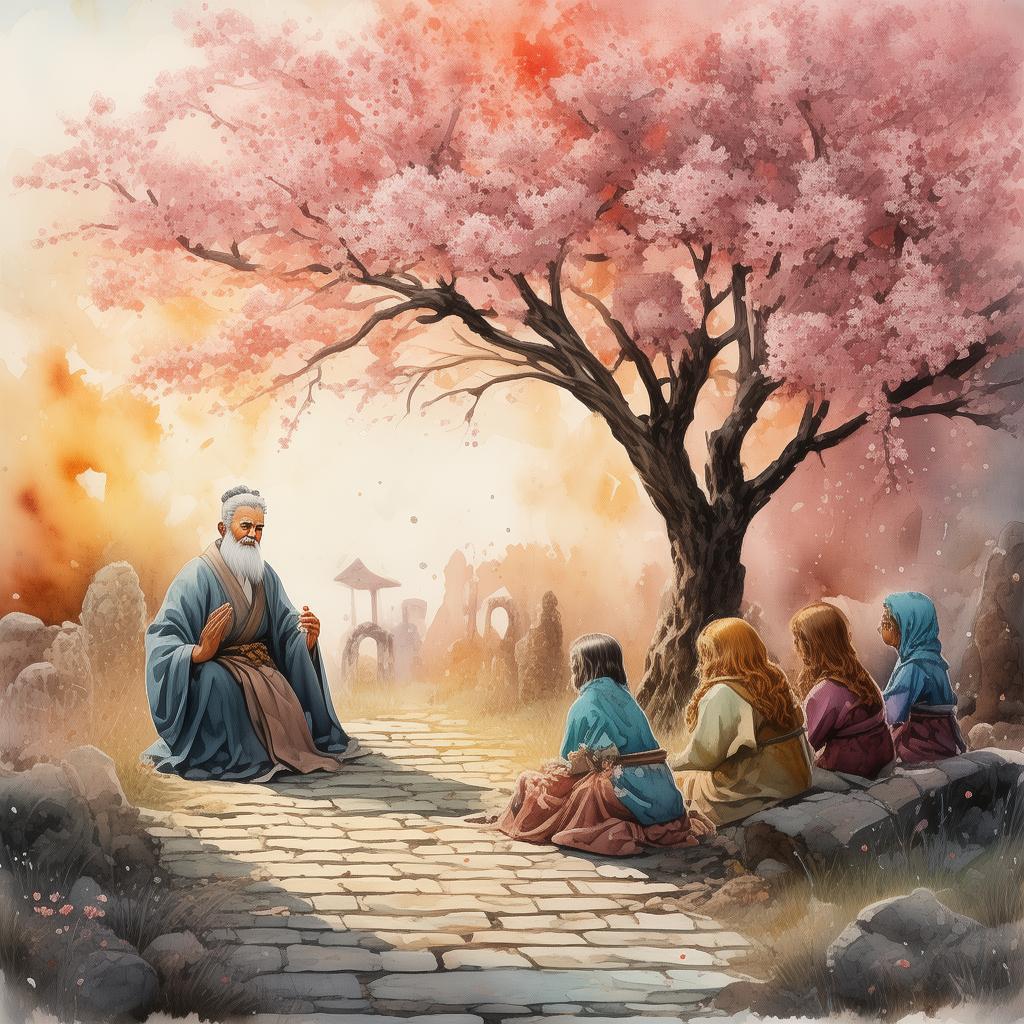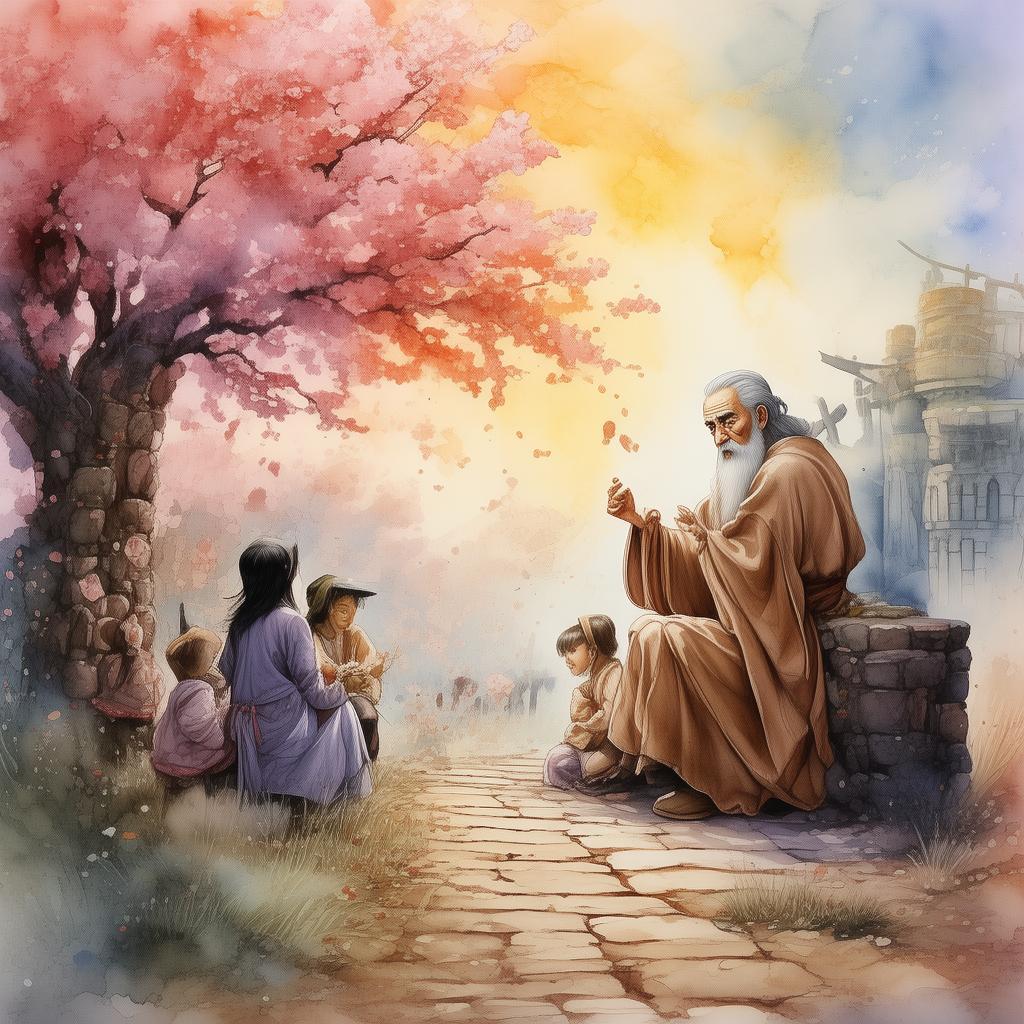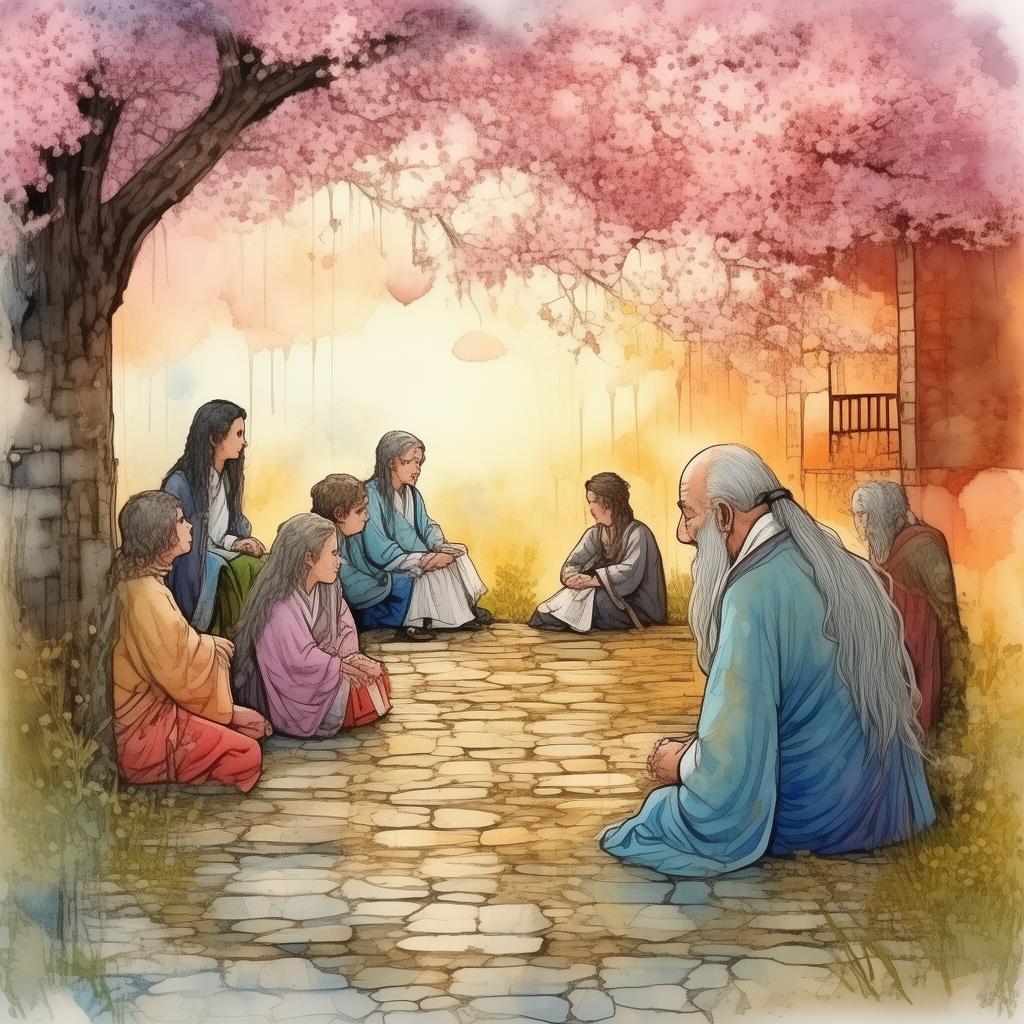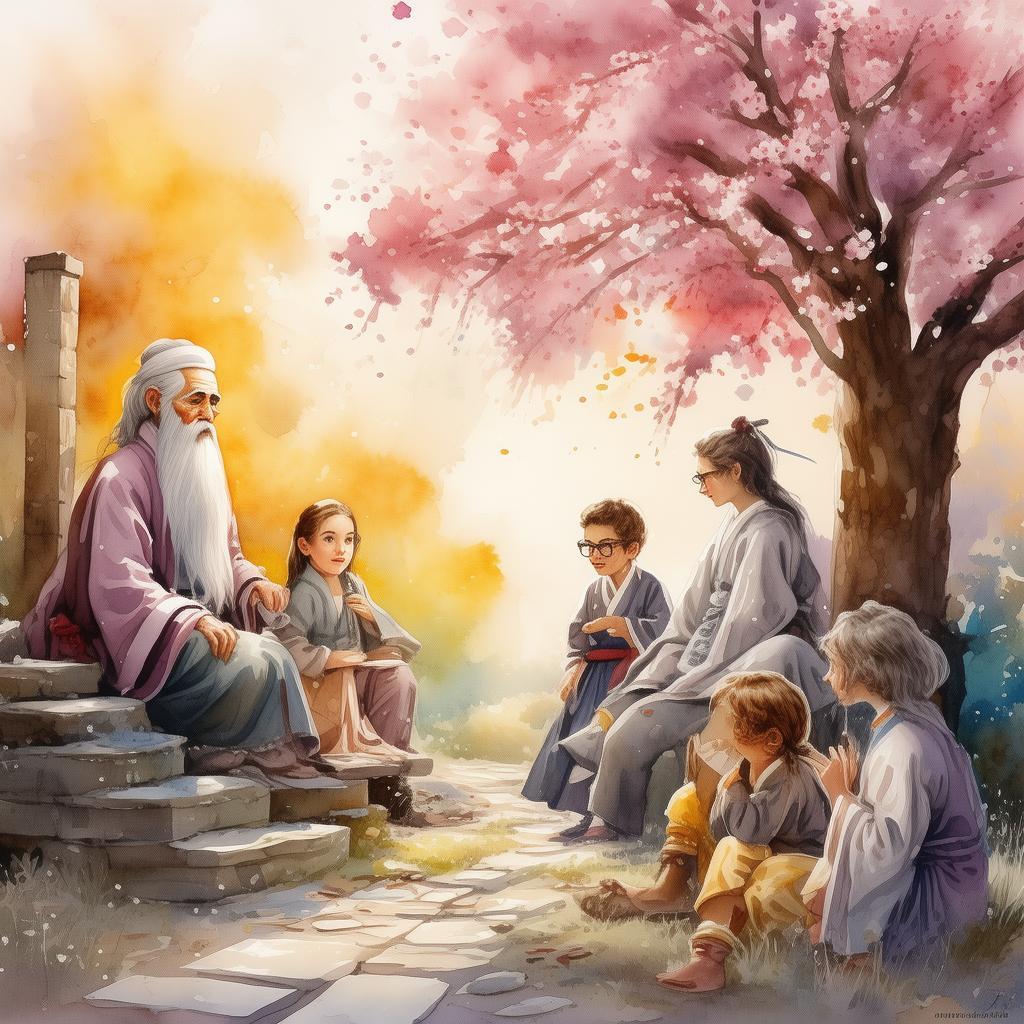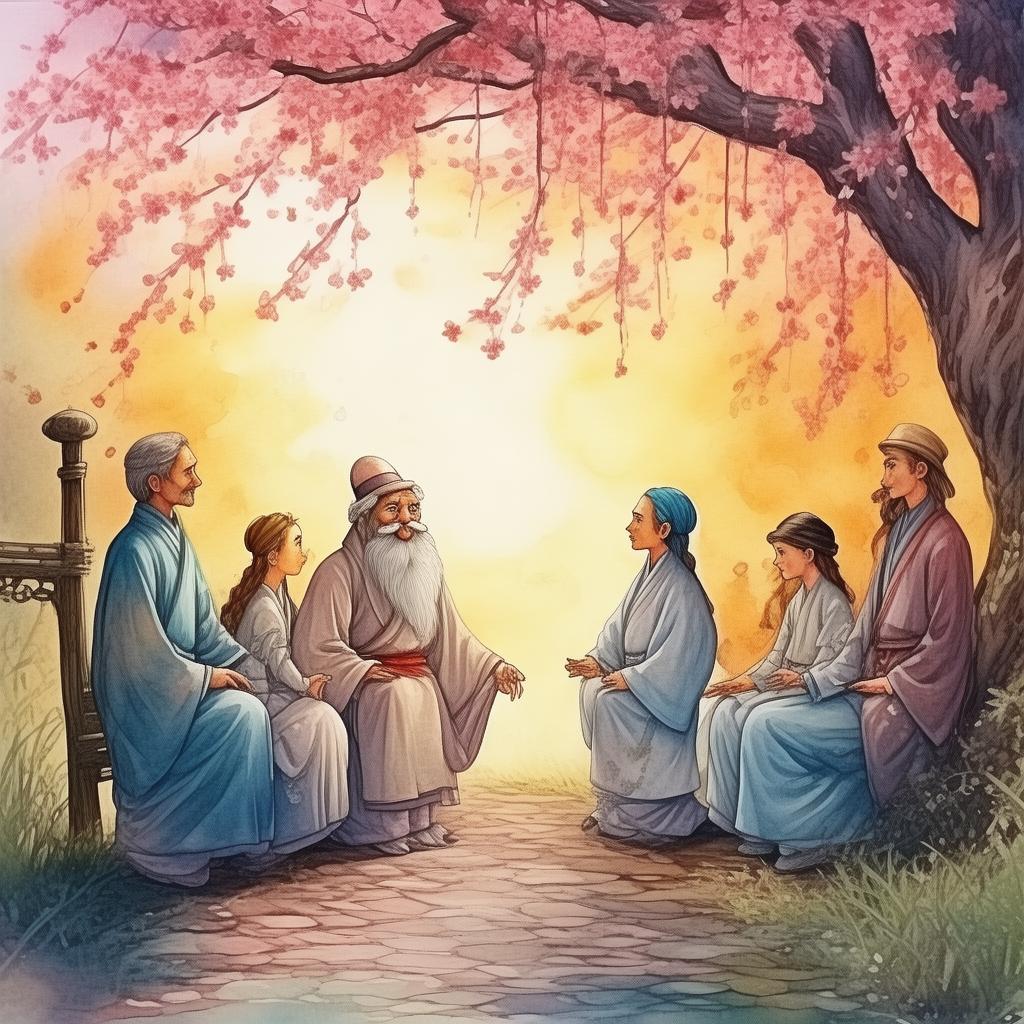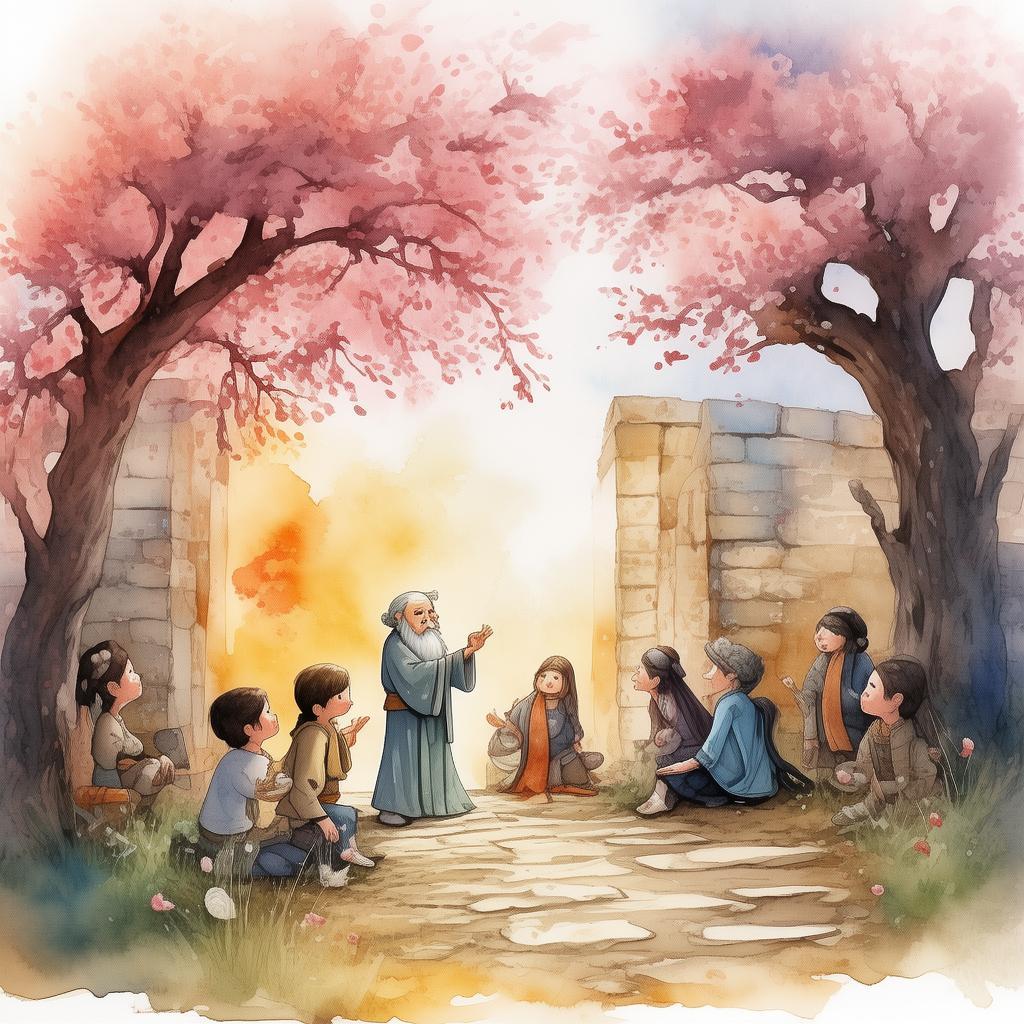The Unseen Thread: The Tale of the Wandering Silk Road
In the heart of the Silk Road, where the caravans bore the weight of spices, silks, and tales, there lived a master weaver named Li Hua. His threads were as delicate as the morning mist and as strong as the mountains that loomed over his village. Li Hua's greatest creation was not a tapestry but a secret, one that he had carried with him since childhood—a secret known only to him.
The idiom "The Unseen Thread" was a metaphor for the unseen effort and dedication that made a masterpiece complete. It was a principle that Li Hua lived by, for he knew that in the world of weaving, every thread, whether seen or unseen, was essential.
One day, as the sun dipped below the horizon, casting long shadows across the desert, a stranger arrived at Li Hua's doorstep. The man, dressed in robes that shimmered with the dust of distant lands, spoke of a quest for the most exquisite silk in the world, a quest that could only be fulfilled by the master weaver himself.
Li Hua's heart swelled with pride. He had heard the tales of the stranger's travels, tales of cities that had never seen light and wonders that could not be imagined. He agreed to the quest, knowing that it was a chance to showcase his art to the world.
The stranger, whose name was Khan, led Li Hua on a journey that took them through the most dangerous parts of the Silk Road. They crossed treacherous mountains, crossed the vast desert, and navigated through lands where the law of the jungle ruled. At every turn, Khan's true intentions were veiled in mystery, and Li Hua found himself questioning the stranger's words.
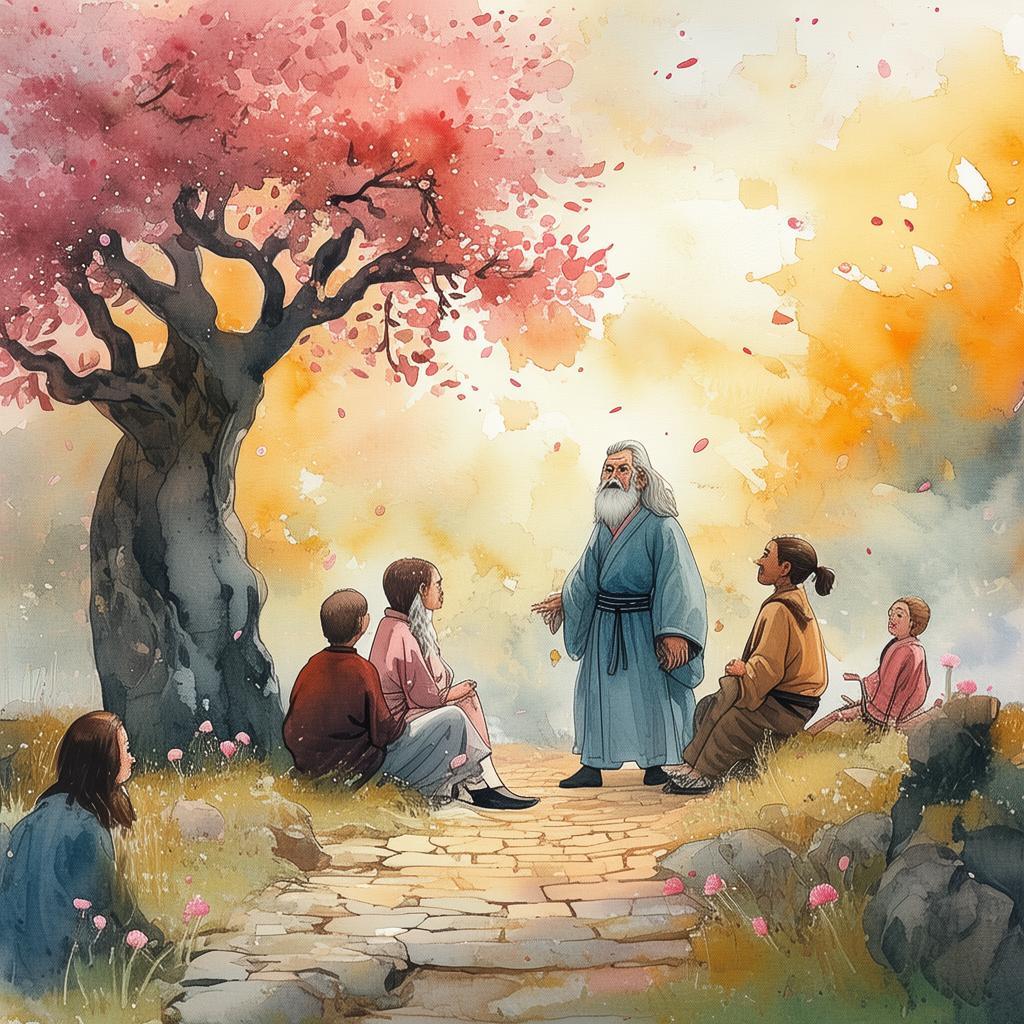
As they approached the final destination, Khan revealed his plan. He intended to steal Li Hua's secret, the one that made his silk so extraordinary—the secret of the "Unseen Thread." Khan believed that with this knowledge, he could surpass Li Hua and become the most famous weaver of all.
Li Hua's hands trembled with the weight of his decision. To betray his village, his heritage, and his own moral code was a thought that haunted him. Yet, the promise of Khan's offer was too enticing to ignore. In a moment of weakness, Li Hua agreed to share his secret, but only after they reached the city where Khan's power was at its zenith.
The city was a marvel, with palaces that seemed to touch the sky and gardens that bloomed even in the barren desert. But as they entered the city, Li Hua realized that Khan's intentions were far from what he had promised. Khan was a man of power, and Li Hua was to be his pawn in a game of treachery.
That night, as the city's lanterns flickered in the wind, Khan unveiled his true plan. He intended to take Li Hua's secret and use it to weave a tapestry that would make him the most powerful man in the land. Li Hua knew that if Khan succeeded, the "Unseen Thread" would be lost to the world, and the art of silk weaving would never be the same.
With a deep breath, Li Hua revealed Khan's true intentions to the city's rulers. The rulers, who had long admired the Silk Road's master weavers, were appalled by Khan's treachery. They confronted Khan, and with the power of their words, exposed his deceit.
Khan was banished, and Li Hua was hailed as a hero. The rulers of the city offered him a place in their court, where he could continue his work and ensure that the "Unseen Thread" would not be forgotten. Li Hua declined the offer, knowing that his true home was with his village and his people.
With the "Unseen Thread" safely in his possession, Li Hua returned to his village. He shared his experiences with his fellow weavers, and together they worked to preserve the secret of the "Unseen Thread." The village thrived, and the legend of Li Hua and the "Unseen Thread" spread far and wide.
Years passed, and the Silk Road continued to be a place of wonder and danger. But no matter where the caravans traveled, they carried with them the tale of Li Hua, the master weaver who had fought for the truth and the beauty of the "Unseen Thread."
In the end, it was not the silk that made Li Hua's name remembered, but the spirit of the idiom he had so passionately defended. It was a testament to the power of unseen effort, the value of integrity, and the enduring legacy of a man who had chosen to weave not just with his hands, but with his heart.
✨ Original Statement ✨
All articles published on this website (including but not limited to text, images, videos, and other content) are original or authorized for reposting and are protected by relevant laws. Without the explicit written permission of this website, no individual or organization may copy, modify, repost, or use the content for commercial purposes.
If you need to quote or cooperate, please contact this site for authorization. We reserve the right to pursue legal responsibility for any unauthorized use.
Hereby declared.
